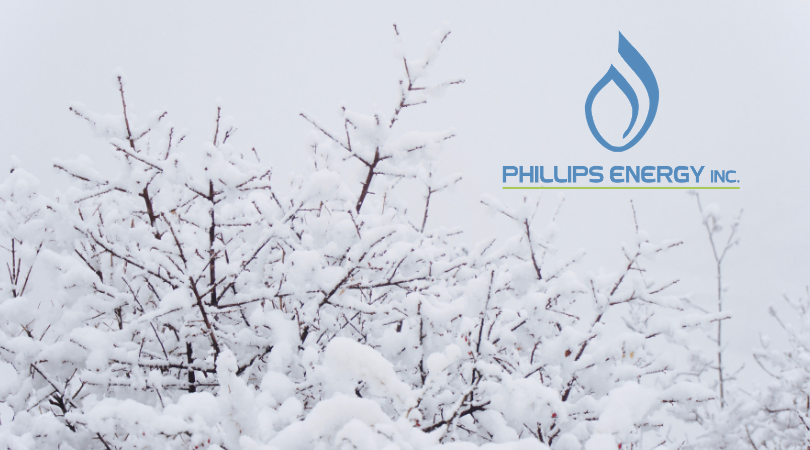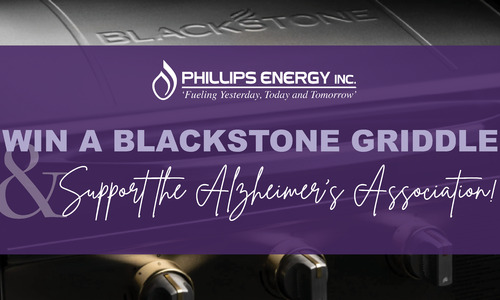Preparing for Winter Storms

Severe weather impacts Virginia all year long – we’re definitely used to preparing for hurricane season, after all.
But winter weather can get equally severe here in the mid-Atlantic. In 2017 and early 2018 we saw record low temperatures and, as some of you may remember, in the late 1990s an ice storm brought power outages throughout the region.
There are still many ways we can all prepare for winter storms. Here are a few tips we’ve gathered thanks to the Propane Education & Research Council.
Get prepared BEFORE a winter storm
If a winter storm is expected to bring a lot of snowfall, make sure your propane tank, whether it is located above or below the ground, is marked properly by a flag, pole, or stake that is higher than the average snow cover depth for your location. This will increase the odds of it being seen by someone such as a snowplow operator, reducing the chances for a potentially fatal accident.
Make sure you have an adequate supply of propane in your tank. During and after a winter storm, roads leading to your home or business might not be accessible for delivery. Before the winter season starts, consider establishing a regular delivery schedule with your propane retailer. Questions on how to do that? Contact us here at Phillips Energy.
Know how and where to shut off the outdoor propane supply and indoor propane appliances. For more information, contact us here at Phillips Energy.
MAKE SURE THAT YOU AND YOUR FAMILY KNOW WHAT PROPANE SMELLS LIKE. Propane has a strong, unpleasant smell like rotten eggs, a skunk’s spray, or a dead animal.
NEVER ever ever ever store or place a propane cylinder indoors or in an enclosed area such as a basement, garage, shed, or tent.
Consider installing a carbon monoxide (CO) detector.
Create an emergency preparedness plan and review it regularly with your family in order to keep them safe during a potential disaster.
What to do DURING a winter storm
If a winter storm is predicted, listen to the local authorities, or television and radio stations, for instructions on the appropriate course of action to take. Although it is recommended to always have an adequate supply of propane in your tank, it is especially important during the winter months because in the event of a storm, roads leading to your home or farm might not be accessible for additional delivery.
Snow and ice can create serious problems for your home’s propane system by freezing and cracking pipes, regulators, valves, or other types of propane equipment.
Make sure to clear snow and ice away from all outdoor vents, chimneys, and flues, thereby reducing the potential for CO poisoning. Whenever possible, use a broom instead of a shovel in order to not damage your propane system components.
Clear snow and ice from around your propane tank. If the pipes freeze and crack, gas can pool in the snow, causing it to become an ignition source, creating a potentially dangerous situation.
What to do AFTER a winter storm
After a winter storm, use caution in the area surrounding your home or business. If you have any doubts about your safety, leave the area immediately and have your property inspected by a qualified building inspector or structural engineer before re-entering. Take the time to carefully evaluate the condition of all the structures on your property. If it is dark, use flashlights, not candles.
Look carefully around the entire area. Check for downed power lines; they can create major safety hazards. High winds or falling ice can move, shift, or damage gas lines and tanks. Immediately call your local utility company or propane retailer if any of these hazards exist.
Always follow these general safety rules
NEVER use outdoor propane appliances indoors or in enclosed areas. This can result in CO poisoning or death. These include outdoor portable heaters, barbecue grills, and portable generators. Only use appliances indoors that are designed and approved for indoor use.
NEVER store or place a propane cylinder indoors or in an enclosed area such as a basement, garage, shed, or tent.
NEVER use a gas oven or range-top burners to provide space heating.
DO NOT UNDER ANY CIRCUMSTANCES TRY TO MODIFY OR REPAIR VALVES, REGULATORS, OR OTHER APPLIANCE PARTS. Contact us here at Phillips Energy.
DO inspect your propane appliances for water or other damage, if it is safe to do so. If the appliances have electric components and have been exposed to water, they can create a fire hazard.
If you suspect any of your propane appliances, equipment, or vehicles have been under water or they have been damaged, or you have turned off your gas supply:
- DO schedule a time for Phillips Energy to perform a complete inspection of your propane system. Our technicians can also perform a leak test on the system and re-light your pilot lights.
- DO NOT use or operate appliances, equipment, or vehicles, or turn on the gas supply, until your system has been inspected by a qualified service technician.
- DO call us at Phillips Energy anytime you have a question.
